Planning worship?
Check out our sister site, ZeteoSearch.org,
for 20+ additional resources related to your search.
- |
User Links
Person Results
‹ Return to hymnal
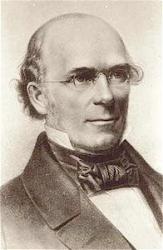
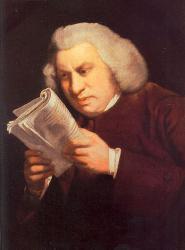
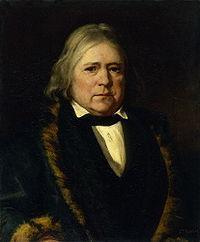
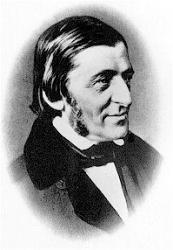
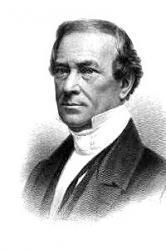
Export as CSV
Sarah Elizabeth Miles
1807 - 1877 Person Name: Mrs. Miles Hymnal Number: 395 Author of "The earth, all light and loveliness" in A Book of Hymns for Public and Private Devotion. (10th ed.) Miles, Elizabeth, nee Appleton, was born at Boston, U.S.A,, March 28, 1807, and married in 1833 to Solomon P. Miles, Head Master of the Boston High School, and afterwards the Principal of a private school for young ladies in the same city. He died in 1842. On leaving Boston, Mrs. Miles went to reside with her son at Brattleborough, Vermont. Her principal hymns are:—
1. The earth all light and loveliness. Part i. Summer.
2. When on devotion's seraph wing. Part ii., st. v., vii. Foretaste of Heaven. These two parts appeared as one hymn in The Christian Examiner, 1828.
3. Thou Who didst stoop below. Looking unto Jesus. Appeared in The Christian Examiner, 1827. Sometimes it begins with st. ii., "It was no path of flowers," as in the Boston Unitarian Book of Hymns, 1846.
4. Father, direct my ways. Divine Guidance desired in Affliction. In the Boston Book of Hymns, 1846; the Boston Hymns of the Spirit, 1864; and some other collections, it begins with st. ii., "Thou, infinite in love."
Three additional hymns were published for the first time in Putnam's Singers and Songs of the Liberal Faith, 1875. [Rev. F. M. Bird, M.A.]
--John Julian, Dictionary of Hymnology (1907)
Sarah Elizabeth Miles
Theodore Parker

1810 - 1860 Person Name: T. Parker Hymnal Number: 156 Author of "O thou great Friend to all the sons of men" in A Book of Hymns for Public and Private Devotion. (10th ed.) Parker, Theodore, M.A., was born at Lexington, Massachusetts, Aug. 24, 1810; laboured with his father as a farmer and mechanic; entered Harvard College in 1830, but continued his work at home and attended the College for examinations; attended the Divinity School from 1834 to 1836, and became pastor of the Unitarian congregation in West Roxbury, June 21, 1837. He received the degree of M.A. from his College in 1840. Changes in his theological views led him to undertake the pastorate of a congregation in Boston, in January 1846. He continued his writing, preaching, and lecturing till 1859, when bleeding at the lungs compelled him to seek relief in Europe. He died at Florence, May 10, 1860. His publications were numerous, and have been republished in Great Britain. An extended list is given, together with 12 poetic pieces, in Putnam's Singers and Songs of the Liberal Faith, Boston, U. S. A., 1875. His life has been published by Weiss, and by Frothingham. A few of his poetical pieces are given in American Unitarian hymn-books.
These include :—
1. In darker days and nights of storm. Almighty Love. "Introduced in a sermon which Mr. Parker preached, entitled ‘The Practical Effects of the Ecclesiastical Conception of God.’”
2. 0 Thou great Friend of all the sons of men. Jesus the Way, the Truth, and the Life. This in the original is a sonnet. Altered for use as a hymn, it is widely used by American Unitarian; and is also given in some English hymnbooks.
-- John Julian, Dictionary of Hymnology (1907)
Theodore Parker
Samuel Johnson

1709 - 1784 Person Name: Dr. Johnson Hymnal Number: 467 Author of "O Thou whose power o'er moving worlds presides" in A Book of Hymns for Public and Private Devotion. (10th ed.)
Samuel Johnson
William Johnson Fox

1786 - 1864 Person Name: W. J. Fox Hymnal Number: 135 Author of "Jews were wrought to cruel madness" in A Book of Hymns for Public and Private Devotion. (10th ed.) Fox, William Johnson, the son of a small farmer in Suffolk, was born in 1786. As a boy he worked as a weaver, but subsequently spent six years in a bank. He was educated for the ministry under Dr. Pye Smith, at Homerton. His first settlement was with an Orthodox Independent congregation; but he very soon became a Unitarian. In 1817 he settled in London as minister of the Parliament Court Chapel. In 1824 lie removed to a new chapel at South Place, Finsbury, where he remained until 1852. He was a prominent member of the Anti Corn-law League; joined in founding the Westminster Review, and from 1831 to 1836 was owner of the Monthly Repository. From 1847 to 1863 he sat in Parliament as member for Oldham. He died in 1864. In 1841 he published Hymns and Anthems, London, Charles Fox. This, collection contained 150 selections from various authors, including Mrs. Sarah Adams, who was a member of his congregation. He included 13 of his own hymns. A new and enlarged edition of his Hymns, &c, was published in 1873. A memorial edition of his Works was published in 12 vols. in 1865.
His hymns which have come into common use outside of his collection include:—
1. A little child in bulrush ark. Moses.
2. Call them from the dead. The Spirits of the Past.
3. Gracious Power, the world pervading. Public Worship.
4. In the plan divine. Perfection of God's designs.
5. Jews were wrought to cruel madness. Good Friday. B. V. M. at the Cross.
6. The sage his cup of hemlock quaffed. Resignation.
[Rev. Valentine D. David, B.A.]
--John Julian, Dictionary of Hymnology (1907)
William Johnson Fox
Ralph Waldo Emerson

1803 - 1882 Person Name: R. W. Emerson Hymnal Number: 423 Author of "We love the venerable house" in A Book of Hymns for Public and Private Devotion. (10th ed.) Emerson, Ralph Waldo, son of an Unitarian Minister, was born at Boston, U.S., May 25, 1803. He was educated for the Unitarian Ministry, and acted, 1829-32, as one of their ministers. Ultimately he left the ministry, and devoted himself to lecturing and literature. As a philosopher, essayist, and poet he rose to a distinguished position. He died at Concord, Massachusetts, April 27, 1882. His published works include Poems, 1846; Orations, Lectures, and Addresses, 1844; Representative Men, 1850; English Traits, 1856, &c. His hymns are not numerous.
They include:—
1. Out from the heart of nature rolled. The Everlasting Word. This is part of his poem The Problem, published in the Dial, July, 1840; and then in the 1st ed. of his Poems, 1846. It was included in the Hymns of the Spirit, 1864, No. 636; and Martineau's Hymns, &c, 1873, No. 112.
2. We love the venerable house. The House of God. Written in 1833, for the Ordination of the Rev. Chandler Bobbins, who succeeded Emerson as Minister of the Second (Unitarian) Church, Boston. It is in the Hymns of thd Spirit, 1864, No. 224; and Martineau's Hymns of Praise and Prayer, 1873.
-- John Julian, Dictionary of Hymnology (1907)
Ralph Waldo Emerson
John Patrick
1632 - 1695 Person Name: Patrick Hymnal Number: 50 Author of "O God! we praise Thee, and confess" in A Book of Hymns for Public and Private Devotion. (10th ed.) John Patrick, a brother of Bishop Simon Patrick, was Prebendary of Peterborough, 1685; Precentor of Chichester, 1690; and preacher at the Charter-House, in the Chapel of which he was buried on his death, in 1695. His "Psalms of David, in Metre," were much used by Presbyterians and Independents until superseded by the compositions of Watts.
----Annotations of the Hymnal, Charles Hutchins, M.A. 1872.
John Patrick
Andrews Norton
1786 - 1853 Person Name: Norton Hymnal Number: 322 Author of "Faint not, poor traveller, though the way" in A Book of Hymns for Public and Private Devotion. (10th ed.) Norton, Andrews, D.D., son of Samuel Norton, was born at Higham, Massachusetts, Dec. 31, 1786, and was educated at Higham, and at Harvard College. After being engaged there for a short time as a tutor, he was appointed Librarian, and subsequently Lecturer on Biblical Criticism, as successor to Dr. Channing. When the Theological School was opened in 1819 he became Dexter Professor of Literature. This position he held until 1830. He died at Newport, Rhode Island, Sept. 18, 1853. He was for some time editor of the General Repository and Review, and published several prose works, one of the most extensive being The Genuineness of the Gospels, in 4 volumes. His hymns are few in number, and are mainly meditations in verse. They were contributed to various periodicals, and after his death were collected and published in a small volume. Of these hymns the following are in common use:--
1. Another year, another year, The unceasing rush, &c. Close of the Year. Appeared in the Christian Examiner in Nov. and Dec. 1827, in 11 stanzas of 4 lines. It is used in an abbreviated form. In the American Boston Unitarian Hymns [&Tune] Book, 1868, it begins with st. vi., "O what concerns it him whose way."
2. Faint not, poor traveller, though thy way. Fortitude. Printed in the Christian Disciple, July and Aug., 1822, in 7 st. of 4 1., and again in the West Boston Collection, 1823.
3. He has gone to his God, he has gone to his home. Burial. Printed in the Christian Examiner, Jan. and Feb., 1824.
4. My God, I thank Thee! may no thought. Trust and Submission. Appeared in the Monthly Anthology and Boston Review, Sept., 1809. This is his earliest and best known hymn.
5. 0 stay thy tears:for they are blest. Burial of the Young. Printed in the General Repository and Review, April, 1812, in 5 st. of 4 1. In 1855, st. iii.-v. were given in Beecher's Plymouth Collection, No. 1094, as "How blest are they whose transient years."
6. Where ancient forests round us spread. Dedication of a Church. This "Hymn for the Dedication of a Church," is dated 1833.
These hymns are in some of the American hymnals. Nos. 1, 4, 5 are in Martineau's Hymns, 1873, and the full texts of all are in Putnam's Singers and Songs of the Liberal Faith, Boston, U.S.A., 1875. [Rev. F. M. Bird, M.A.]
--John Julian, Dictionary of Hymnology (1907)
Andrews Norton
Mary Whitwell Hale
1810 - 1862 Person Name: Mary W. Hale Hymnal Number: 568 Author of "When in silence, o'er the deep" in A Book of Hymns for Public and Private Devotion. (10th ed.) Hale, Mary Whitwell, daughter of Eliphalet Hale of Boston, U.S.A., was born at Boston, Jan. 29, 1810. After receiving a good education she devoted herself to educational work in Boston, Taunton, Keene, N. H., and elsewhere. She died Nov. 17, 1862. Her hymn-writing was brought into notice by two hymns, one on "Home," and the second on "Music," which were written for a juvenile concert at the Unitarian Church in Taunton, April 1834. Several of the hymns and poetical pieces which she subsequently wrote were contributed to the Christian Register under the initials "Y. L. E.," the concluding letters of her name. Her Poems were published at Boston in 1840. A few of her hymns also appeared in the Unitarian Christian Hymns for Public and Private Worship, commonly known as the Cheshire Collection, in 1844. [American Hymnody, § vii.] Putnam (to whom we are indebted for these details) gives the following of her hymns, with others, in full in his Singers and Songs of the Liberal Faith, 1874 :
1. "Praise for the glorious light." Temperance Anniversary.
2. "This day let grateful praise ascend." Sunday.
3. "Whatever dims the sense of truth." A Mother's Counsel.
4. "When in silence o'er the deep." Christmas.
These hymns were given in the Cheshire Collection, 1844. Nos. 2 and 3 were taken from her Poems. Some of the other pieces given by Putnam are worthy of attention.
-- John Julian, Dictionary of Hymnology
Mary Whitwell Hale
N. L. Frothingham

1793 - 1870 Person Name: Frothingham Hymnal Number: 23 Author of "O God, whose presence glows in all" in A Book of Hymns for Public and Private Devotion. (10th ed.) Frothingham, Nathaniel Langdon, D.D., born at Boston July 23rd, 1793, and graduated at Harvard 1811, where he was also sometime Tutor. From 1815 to 1850 he was Pastor of the First Church (Unitarian), Boston, and subsequently attended as a worshipper the church where he had been 35 years minister till his sight and strength failed him. He died April 4th, 1870.
His Metrical Pieces, in 2 volumes, were published in 1855 and 1870.
1. O God, Whose presence glows in all. Ordination. This was written in 1828 for the ordination of W. B. Lunt, New York.
2. We meditate the day . Installation. Written in 1835 for Mr. Lunt's installation at Quincy, Mass., as Co-pastor with Peter Whitney.
3. O Lord of life and truth and grace . Ordination. Also a special hymn. It was composed for the ordination of H. W. Bellowes, New York, 1839. It is found in common with Nos. 1 and 2 in Frothingham's Metrical Pieces, 1855. These Metrical Pieces are unknown to the English Collections. [Rev. F. M. Bird, M.A.]
--John Julian, Dictionary of Hymnology (1907)
================
Frothingham, N. L. , p. 400, ii. Other hymns are:—
1. O Saviour, Whose immortal word. Opening of a Place of Worship. Written "For the Dedication of the Church of the Saviour, Boston, November 16, 1847."
2. Remember Me, the Saviour said. Holy Communion.
3. They passed away from sight. Death and Burial.
4. When I am weak, I'm strong. Spiritual Strength. Nos. l, 2, and 4 are from his Metrical Pieces, Translated and Original, 1855,
--John Julian, Dictionary of Hymnology, Appendix, Part II (1907)
N. L. Frothingham
Jean Frederic Oberlin
1740 - 1826 Person Name: Oberlin Hymnal Number: 242 Author of "O Lord, Thy heavenly grace impart" in A Book of Hymns for Public and Private Devotion. (10th ed.)
Jean Frederic Oberlin


 My Starred Hymns
My Starred Hymns


